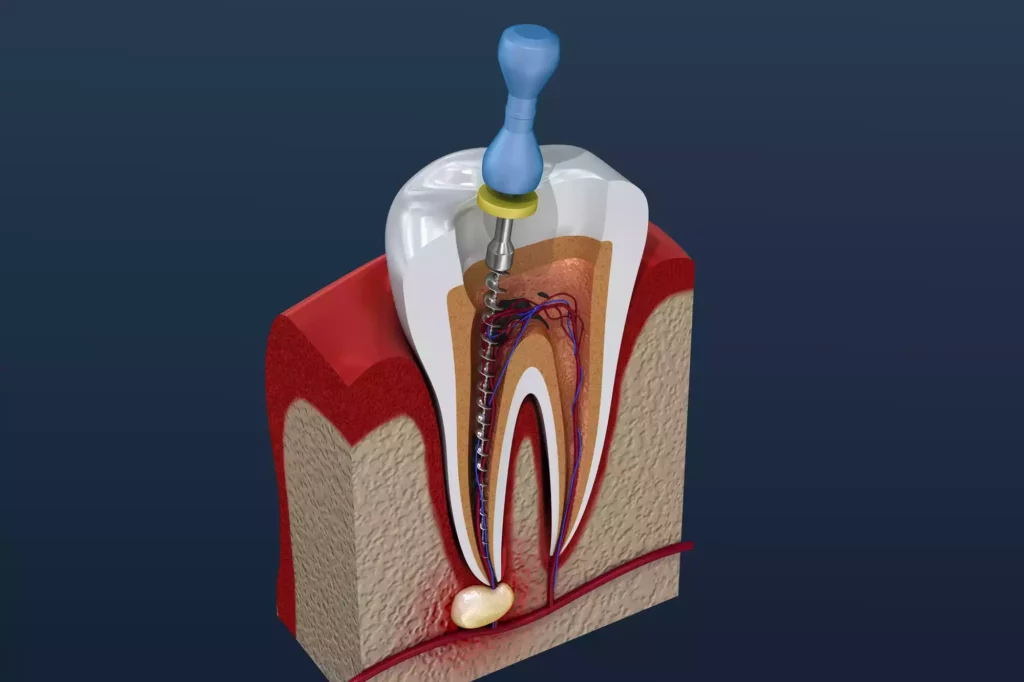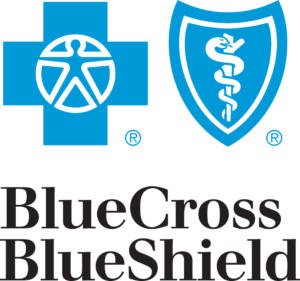Endodontic surgery, a specialized branch of dentistry, is a vital treatment option for individuals experiencing complex dental conditions.
From the initial diagnosis to the journey of recovery, the process encompasses several stages that are crucial to achieving optimal oral health. This blog post will take you on a chronological tour, shedding light on each step involved in this surgery and providing valuable insights to help you navigate the entire experience with confidence.

Preparing for Endodontic Surgery: Understanding the Diagnosis Process
Endodontic surgery is a specialized dental procedure aimed at addressing complex dental issues that cannot be treated through conventional means. Before undergoing endodontic surgery, it is crucial to go through a comprehensive diagnosis process to determine the root cause of the problem and establish the most appropriate course of action.
The first step in the diagnosis process is a thorough examination by a qualified endodontist. This examination may involve taking X-rays, conducting special tests, and reviewing your dental history. These diagnostic tools enable the endodontist to assess the condition of your tooth, identify any underlying issues, and determine whether surgery is necessary.
Once the examination is completed, the endodontist will share the findings with you and explain the diagnosis in detail. This is an essential part of the process as it helps you understand the nature of your dental problem, the possible treatment options, and the expected outcomes of this surgery.
In certain cases, the diagnosis process may reveal that this surgery is not the most suitable treatment option. In such instances, alternative non-surgical treatments will be discussed and recommended based on your specific condition and needs. It’s important to be receptive to these alternative options as they could potentially eliminate the need for surgery while still addressing the underlying dental issue.
Once it has been determined that this surgery is the appropriate solution, the endodontist will provide you with instructions on how to prepare for the procedure. These instructions may include fasting guidelines, discontinuation of certain medications, and other recommendations to ensure optimal results and minimize any potential risks.
Understanding the diagnosis process is crucial when preparing for endodontic surgery. This process involves a comprehensive examination, discussion of findings, exploration of alternative treatments, and pre-surgery instructions. By familiarizing yourself with this journey, you can approach this surgery with confidence and increase the chances of a successful outcome.
Navigating the Surgical Procedure: What to Expect During Endodontic Surgery
If your dentist has recommended endodontic surgery for your dental condition, it’s natural to have questions about what to expect during the procedure. Understanding the process can help alleviate any anxiety and ensure a smooth experience.
Prior to the surgery, your endodontist will provide you with detailed instructions to prepare for the procedure. These may include guidelines on fasting, medication modifications, and arranging transportation to and from the clinic. Following these instructions carefully is essential for your safety and the success of the surgery.
When the day of the surgery arrives, your endodontist will explain the procedure to you and address any remaining concerns or questions. The surgical process begins with the administration of local anesthesia to ensure you are comfortable throughout the surgery. Once the area is numb, your endodontist will make a small incision to gain access to the affected area.
During the procedure, your endodontist will carefully remove the infected tissue, cleanse the root canals, and reshape them as needed. They may use a surgical microscope and other specialized tools to ensure precision and accuracy. Once the root canal system is thoroughly cleaned and shaped, your endodontist will place a biocompatible material to seal the canals and promote healing.
After the surgery, you will receive instructions on post-operative care, including pain management techniques, diet recommendations, and proper oral hygiene practices. It is crucial to follow these instructions diligently to promote healing and minimize any discomfort or complications.
While every case is unique, most patients experience a relatively smooth recovery after this dental procedure. Your endodontist will schedule follow-up appointments to monitor your progress and ensure that the treated tooth is healing properly. By adhering to the recommended aftercare and attending these visits, you can increase the likelihood of achieving a successful outcome.
Post-Surgery Care: Tips for a Smooth Recovery from Endodontic Procedures
Recovering from the surgery requires proper care and attention to ensure a smooth healing process. Following the surgical procedure, it is important to adhere to specific post-surgery care instructions provided by your endodontist. These instructions typically include guidelines for pain management, oral hygiene, and dietary restrictions to promote optimal healing.
One of the essential aspects of post-surgery care is managing any discomfort or pain that may arise. Your endodontist may prescribe pain medication or recommend over-the-counter options to alleviate any post-operative pain. It is crucial to follow the prescribed dosage and instructions provided by the healthcare professional to ensure safe and effective pain management.
Maintaining good oral hygiene is vital during the recovery phase. However, it is essential to be gentle around the surgical site. Brushing and flossing should be done carefully to avoid disturbing the healing process. Your endodontist may also recommend using a mouth rinse or antiseptic solution to reduce the risk of infection.
During the initial days after the surgery, it is advisable to stick to a soft food diet to avoid putting excessive pressure on the surgical area. Foods such as soups, mashed potatoes, yogurt, and smoothies are generally easier to consume and will minimize discomfort during chewing.
Swelling is a common occurrence after surgery, and steps can be taken to minimize it. Applying an ice pack to the outside of the cheek near the surgical site in 15-minute intervals can help reduce swelling and discomfort. Be sure to use a cloth or towel to protect your skin from direct contact with the ice pack.
Another crucial aspect of post-surgery care is attending your follow-up appointments with the endodontist. These appointments allow the healthcare professional to monitor your progress, remove any stitches if necessary, and address any concerns or complications that may arise during the recovery period.
By carefully following the instructions provided by your endodontist and implementing these post-surgery care tips, you can promote a smooth and successful recovery from endodontic surgery. Prioritizing your oral health, pain management, and overall well-being will contribute to the long-term success of the procedure and your oral health.

Managing Discomfort and Pain: Coping Strategies for Endodontic Surgery Patients
Undergoing endodontic surgery can sometimes result in discomfort and pain during the recovery period. However, there are several effective coping strategies that can help patients manage these symptoms and promote a smoother healing process.
One of the key strategies for managing discomfort and pain after endodontic surgery is taking prescribed pain medication as directed by your dentist or endodontist. These medications can help to alleviate pain and reduce swelling, allowing you to feel more comfortable during the healing process.
In addition to medication, applying cold packs or ice packs to the affected area can help to numb the area and reduce swelling. It is important to wrap the ice pack in a thin cloth to prevent direct contact with the skin, as this can cause freezer burn or damage the tissues.
Another effective coping strategy is maintaining good oral hygiene. It is crucial to continue brushing your teeth gently, taking care to avoid the surgical site. Using a soft-bristled toothbrush and a non-alcoholic mouthwash can help to keep your mouth clean and reduce the risk of infection.
Sipping on cool or room temperature liquids and avoiding hot or cold foods can also help to minimize discomfort. Choosing soft, easy-to-chew foods and avoiding hard or crunchy foods can prevent irritation or damage to the surgical site.
Practicing relaxation techniques, such as deep breathing exercises or meditation, can help to reduce stress, which can contribute to heightened pain perception. By relaxing both your mind and body, you can create a more conducive environment for healing and alleviating discomfort.
It is essential to follow all post-surgery instructions provided by your dentist or endodontist. This may include avoiding strenuous activities, refraining from smoking, and attending any follow-up appointments as scheduled. These instructions are designed to facilitate healing and minimize any potential complications.
By implementing these coping strategies, you can effectively manage discomfort and pain after endodontic surgery, allowing for a smoother recovery process.
Long-Term Oral Health: Maintaining Results from Endodontic Surgery
After undergoing endodontic surgery, it’s crucial to prioritize your long-term oral health to ensure the longevity of the procedure’s results. By maintaining proper dental care and adopting healthy habits, you can contribute to the success of your endodontic surgery. Here are some essential tips for maintaining optimal oral health and preserving the benefits of your procedure:
- Practice Consistent Oral Hygiene: Brush your teeth at least twice a day with a soft-bristled toothbrush and fluoride toothpaste. Don’t forget to floss daily to remove plaque and food particles from hard-to-reach areas. Maintaining good oral hygiene habits helps prevent dental issues that could potentially impact the outcome of your surgery.
- Attend Regular Dental Check-ups: Schedule regular visits to your dentist for professional cleanings and examinations. These routine check-ups allow your dentist to monitor the health of your teeth, identify any potential problems early on, and provide appropriate interventions to maintain the results of your endodontic surgery.
- Follow Post-Surgery Instructions: It’s crucial to adhere to any post-surgical instructions provided by your endodontic specialist. This may include taking prescribed medications, maintaining a specific diet, or avoiding certain activities that could jeopardize your healing process. Following these guidelines will aid in the proper healing and long-term success of the surgery.
- Protect Your Teeth: Wear a mouthguard when participating in sports or any activities that could potentially cause dental trauma. Additionally, avoid using your teeth as tools to open packages or bite on hard objects, as this can lead to fractures or other complications.
- Adopt a Healthy Lifestyle: Maintain a balanced diet, rich in fruits, vegetables, lean proteins, and whole grains. Limit your consumption of sugary foods and beverages, as they can contribute to tooth decay. Avoid tobacco use and limit alcohol consumption to promote optimal oral health.
Transform Your Smile with Expert Endodontic Surgery at New Age Dental
At New Age Dental, your dentist in Tijuana, we understand the significance of a healthy, vibrant smile. Our commitment to staying at the forefront of dental technology and our team’s unwavering expertise allow us to offer you the finest in endodontic care. If you suspect that your dental condition might benefit from endodontic surgery, we encourage you to take the vital step of consulting with our experienced endodontists. By doing so, you’ll gain insights into the most suitable treatment options available for your unique situation.
Embrace the process with assurance and embark on a path toward not only improved oral health but also the radiance of a brighter smile. Reach out to New Age Dental today, and let us guide you through this transformative journey. Your smile’s radiance and your overall well-being deserve nothing less than the best that modern endodontic care can offer.





